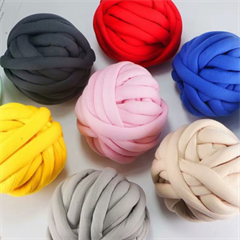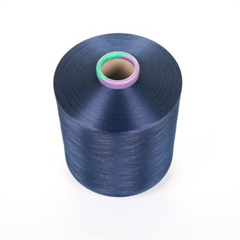Jute yarn is often referred to as “nature’s gift to textiles” due to its unique qualities and its significant contribution to the textile industry. Here are several reasons why jute yarn is considered a valuable and natural gift to the world of textiles:
- Sustainability: Jute is a natural plant fiber that is both rapidly renewable and biodegradable. It is grown from the jute plant, which can be harvested within a short period of time (4-6 months), making it a sustainable and eco-friendly resource.
- Low Environmental Impact: Jute cultivation typically requires fewer pesticides and synthetic fertilizers compared to other fiber crops like cotton. This reduces the chemical pollution of soil and water systems, contributing to a healthier environment.
- Carbon Sequestration: Jute plants have the unique ability to absorb significant amounts of carbon dioxide (CO2) during their growth. This makes jute cultivation a natural contributor to carbon sequestration, helping mitigate climate change.
- Biodegradability: Jute yarn is completely biodegradable, meaning it naturally decomposes over time without leaving behind harmful residues or contributing to the problem of microplastic pollution, which is a concern with synthetic fibers.
- Versatility: Jute yarn is highly versatile and can be used in a wide range of textile applications, including clothing, home furnishings, and industrial textiles. Its natural color and texture give it a rustic and authentic charm.
- Eco-friendly Textiles: Jute yarn is often used to create eco-friendly textiles and fabrics. Blending jute with other natural fibers like cotton or silk can enhance the performance and comfort of textiles while maintaining their eco-friendly characteristics.
- Textile Industry Contribution: Jute has been a vital part of the textile industry for centuries, particularly in regions where it is cultivated. It provides employment opportunities and supports the livelihoods of many people.
- Eco-conscious Consumer Choice: As consumer awareness of environmental issues grows, jute textiles and products made from jute yarn have gained popularity among those seeking sustainable and eco-friendly choices.
- Diversity of Applications: Jute yarn is not limited to traditional textiles but also finds uses in crafts, home decor, and industrial applications such as geotextiles and packaging materials.
- Cultural and Traditional Value: In some cultures, jute textiles have a deep-rooted historical and traditional significance, adding to their value as a natural gift to textiles.
- Natural Aesthetic: Jute’s natural color and texture provide a unique aesthetic that is increasingly appreciated in both fashion and interior design. It adds a touch of rustic elegance to various textile products.
In summary, jute yarn is considered “nature’s gift to textiles” because it embodies sustainability, versatility, and a low environmental footprint. Its eco-friendly qualities, along with its natural beauty, make it a valuable and enduring component of the textile industry, providing both aesthetic and ecological benefits.
























